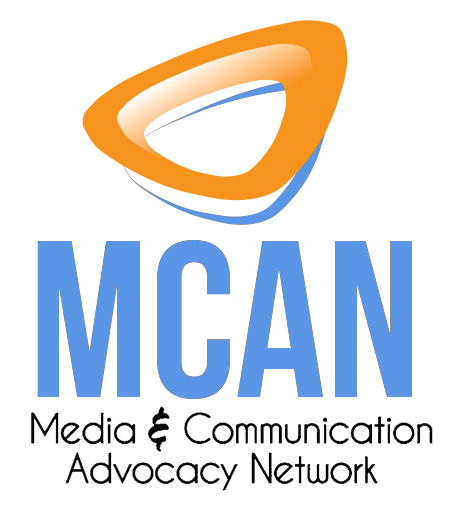The United Nations Population Fund (UNFPA) Ghana has handed over equipment to its implementing partners to support the government of Ghana and the organisation’s implementation of its Eighth Country Programme.
The equipment, worth $58,000, includes 22 laptops, 12 printers, and 22 routers, and will be distributed to 11 Regional Coordinating Councils (RCCs), selected departments, and Civil Society Organizations.

22 laptops, 12 printers, & 22 routers, to be distributed to Regional Coordinating Councils (RCCs), selected departments, & Civil Society Organizations.
According to the Deputy Representative for UNFPA Ghana, Dr. Emmily Naphambo, the handover ceremony was to demonstrate UNFPA’s recommitment to supporting the government of Ghana in achieving its development goals.
“So the handover ceremony today was really to demonstrate our recommitment as UNFPA to the government of Ghana. We are implementing our Eighth Country Programme while supporting the government of Ghana. We work in three core areas. We are here to ensure that there are zero maternal deaths, zero unwanted pregnancies, therefore an unmet need for family planning, as well as zero gender-based violence. And in the work that we do, we support the government through working with a number of departments within the government, as well as civil society organisations to implement our work. So our aim today was really to reassure the government of Ghana that UNFPA is here to continue its support. And one of the ways that we wanted to do that was to hand over the equipment that we’ve bought,” she said.

UNFPA Ghana Deputy Representative, Dr. Emmily Naphambo presenting items to representative from the Ministries
Dr. Naphambo explained that UNFPA works in three core areas: ensuring zero maternal deaths, zero unmet need for family planning, and zero gender-based violence. She added that the equipment will enable implementing partners to report and deliver interventions more effectively, particularly in the areas of maternal health, data and evidence generation, and digital communication.
“So the equipment we have here are to enable our implementing partners to do the work that they are intended to do. When we support work around maternal health and work around data and evidence generation, you need laptops, you need printers, and you need internet. This is a digital edge. So this equipment will enable our implementing partners to ensure that they are not only able to report, but also use the equipment for the delivery of the different interventions they have for the people of Ghana,” she added.

UNFPA Ghana Deputy Representative, Dr. Emmily Naphambo presenting items to reps from the Local Government Agencies
The implementing partners include selected RCCs, ministries, and civil society organizations, such as the Ministry of Gender, Ministry of Health, Ghana Health Service, Planned Parenthood Association of Ghana (PPAG), Purim African Youth Development Platform (PAYD), Human Rights International Corner (HRIC), among others.
Dr. Naphambo emphasized that the selection of implementing partners was based on an evaluation of indicators related to maternal health, gender-based violence, and adolescence and youth programming.
“The selection of the IPs is based on our evaluation of the different indicators as they pertain to maternal health, gender-based violence, and adolescence and youth programming. So from the RCCs perspective, for example, we have Oti, Northeast, Upper East, Upper West, Greater Accra, Ahafo, Volta, Northeast and Northern. Then, in terms of the ministry, we have the Ministry of Gender, the Ministry of Health, and the Ghana Health Service. We’ve got the Ministry of Chieftaincy as well. Those are some of the key government departments and ministries that we work with. Then, from the civil society organizations, we’ve got PPAG, PAYD, HRIC, and many others that we work with,” she explained.

She also noted that the equipment was procured in response to demands from implementing partners, who have been calling for support to enhance their work. While UNFPA has been able to procure some of the requested equipment, Dr. Naphambo acknowledged that some items are fund-intensive and require additional resources. She appealed to investors to support UNFPA in mobilizing resources to procure the remaining equipment.
“The equipment is based on the demands that the implementing partners have been asking us. Suffice to mention that even some of the things they’re asking us, we haven’t been able to do them. So this is something that we’ve been wanting to do, not just because we work with the IPs, but really it’s equipment that the IPs need and have been asking us to support them. We’ll continue mobilizing resources to ensure that we procure some of the items we have not gotten yet, because some are really fund-intensive. So as soon as we have the resources, we’ll be able to procure. But at the moment, this is what we’ve been able to afford to procure,” Dr. Naphambo added.

UNFPA Ghana Delegation with IP Representatives
The handover ceremony marked a significant milestone in UNFPA’s partnership with the government of Ghana and its implementing partners. It demonstrated UNFPA’s commitment to supporting the country’s development goals and ensuring that no one is left behind.

UNFPA Ghana Deputy Representative, Dr. Emmily Naphambo
Story by: Kelly Adjetey Boye | univers.ug.edu.gh

